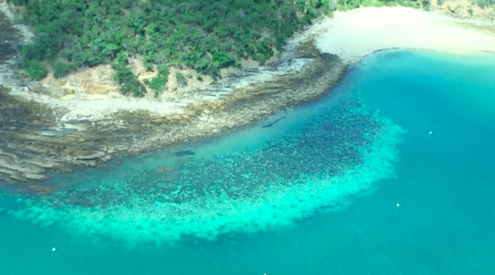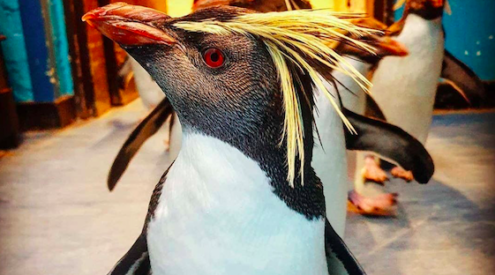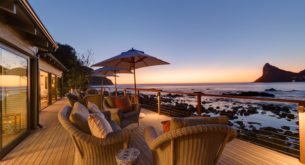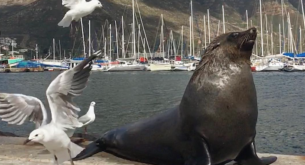Despite the beaches, excellent surf and beautiful scenery, the French isle of Réunion has grown infamous for its propensity for shark attacks occurring in its pretty warm waters.
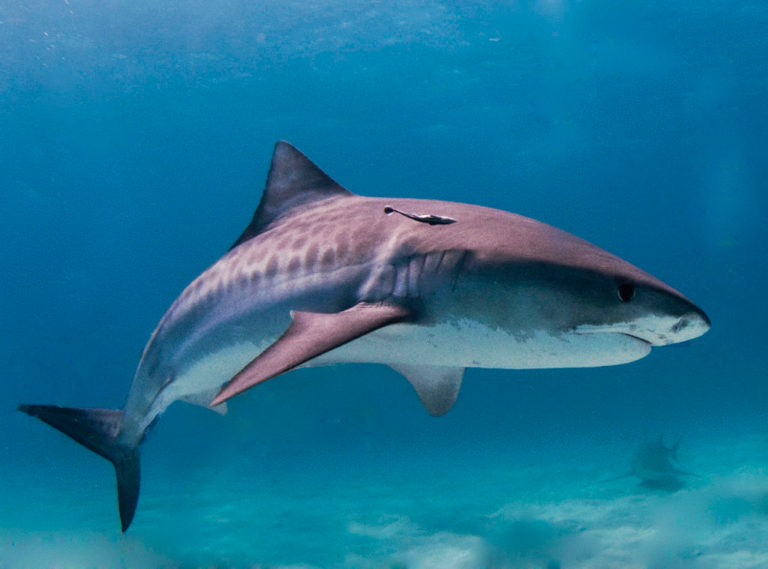
A tiger shark
The common practice of deploying nets and baited drumlines (which have been used along Durban’s coastline) poses a threat to sharks, but a new eco-friendly barrier has been tested to keep both people and sharks safe.
A University of Stellenbosch researcher (Dr Conrad Matthee) and a diving friend Mike Rutzen helped design and have been testing an eco-friendly prototype modelled on kelp forests off the Cape coast and around Gansbaai. Seals were observed darting into these thick forests that provide coverage and helped them evade the sharks, which seemed to lose interest rather than enter the tangled webs of seaweed.
The Sharksafe Barrier ‘bio-mimics the visual effects of a kelp forest’ by using dark pipes which are arranged in a designated, box-like area in the waters. The poles are anchored to ocean floor and float vertically, poking out above the surface of the water.
Surfers, swimmers and divers aren’t the only ones who’d benefit from having these safety barriers. Marine biologists working in the waters off the island’s Saint-Paul coast can’t always be alert or vigilant when engrossed in their work.
The creators believe the Sharksafe Barrier is the first product of its kind to protect both humans and sharks.
Also read:
Image: supplied/media gallery
You may also like



